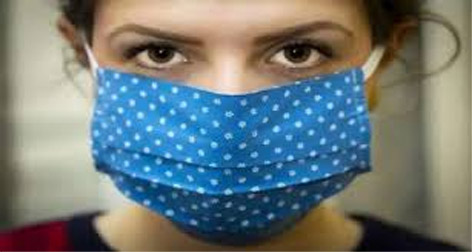Los Angeles, Sep 27: While surgical and N95 masks cut down the amount of aerosolized particles emitted during breathing, talking and coughing, scientists say in the case of homemade cloth face coverings, the fabric which traps the droplets may release a large amount of fibres into the air, underscoring the importance of washing them.
The research, published in the journal Scientific Reports, noted that the use of masks and other face coverings has emerged as an important tool to reduce the spread of the novel coronavirus SARS-CoV-2.
But while evidence shows that face coverings generally reduce the spread of airborne particles containing the virus, the scientists, including those from the University of California Davis (UC Davis) in the US, noted that there is limited information on how well they compare with each other.
They set up experiments to measure the flow of particles from volunteers wearing masks while they performed “expiratory activities” including breathing, talking, coughing and moving their jaw as if chewing gum.
According to the scientists, these particles are small enough to float through the air over a considerable distance, but large enough to carry viruses such as the novel coronavirus which causes COVID-19.
They also found that a fraction of people are “superemitters” who give off many more particles than average.
In the study, 10 volunteers sat in front of a funnel in a laminar flow cabinet which drew air from in front of their faces into a device that measured the size and number of particles they exhaled.
One of the volunteers in the study was a superemitter who consistently produced nearly 100 times as many particles as the others when coughing, the scientists said.
The volunteers wore either no mask, a medical-grade surgical mask, two types of N95 mask (vented or not), a homemade paper mask or homemade one- or two-layer cloth mask made from a cotton T-shirt.
The study found that talking gave off about 10 times more particles than simple breathing without wearing a mask, and forced coughing produced a variable amount of particles.
In all the test scenarios, surgical and N95 masks blocked as much as 90 percent of particles, compared to not wearing a mask, the researchers said.
Face coverings also reduced airborne particles from the superemitter, the study noted.
However, the researchers said, homemade cotton masks actually produced more particles than not wearing a mask.
According to the scientists, these appeared to be tiny fibres released from the fabric.
Since the cotton masks produced particles themselves, they said it’s difficult to tell if they also blocked exhaled particles, but added that they seemed to at least reduce the number of larger particles.
While masks are effective in reducing the spread of airborne particles, the scientists said it is also important to regularly wash cloth masks. (PTI)
Trending Now
E-Paper


